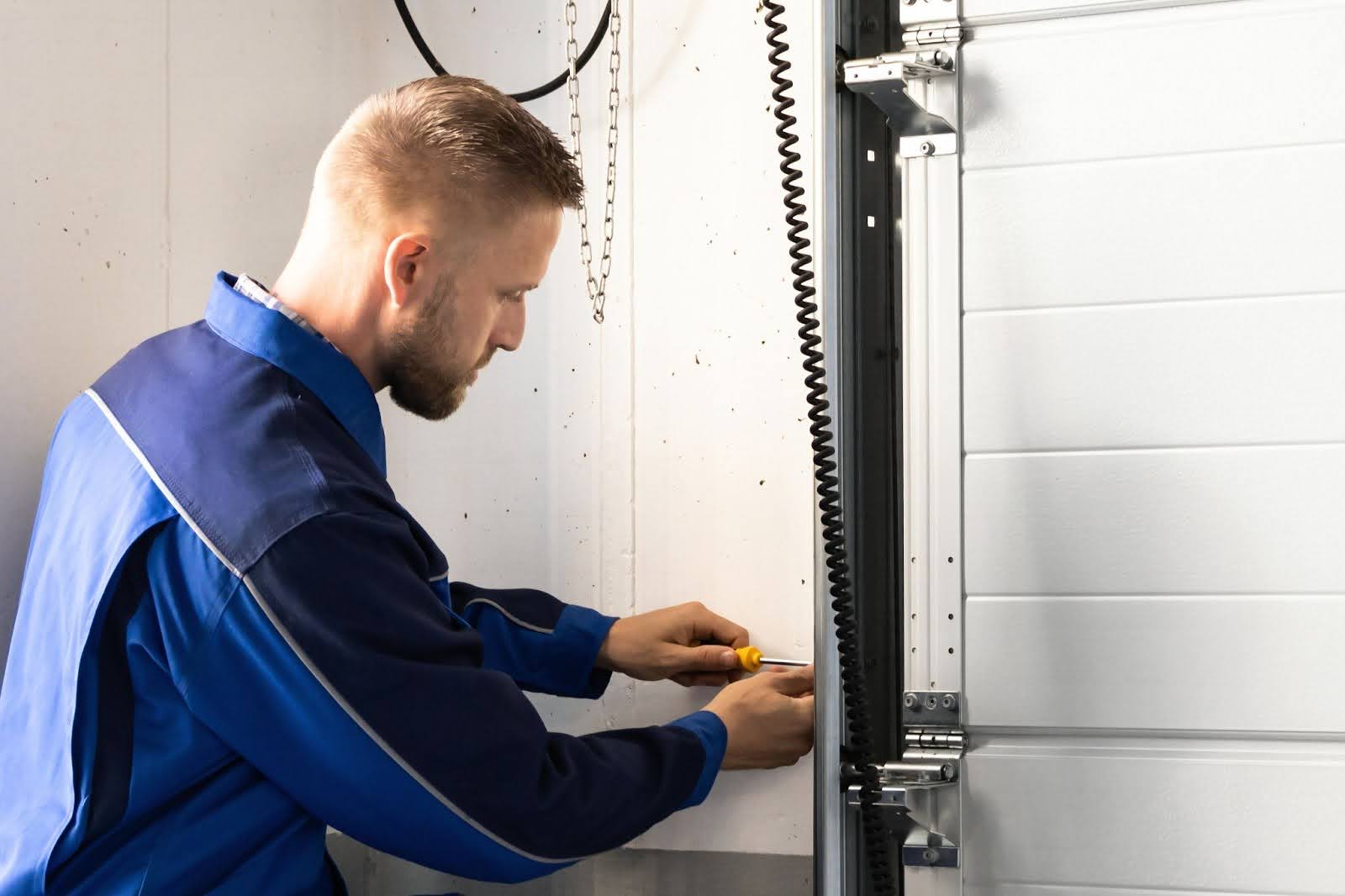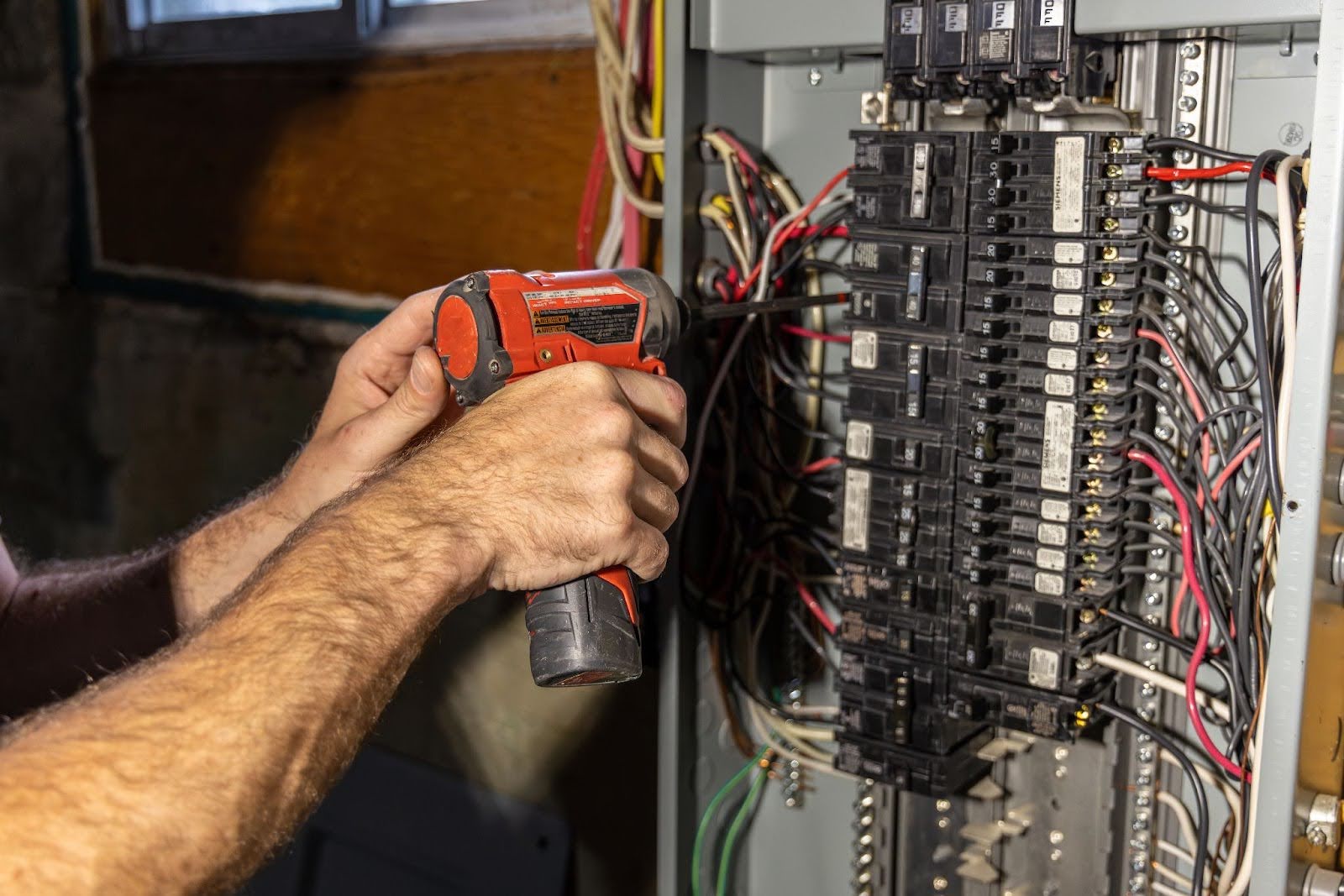The Pros and Cons of Being an Independent Contractor in Indianapolis
Imagine walking into a bustling café just off Massachusetts Avenue in Indianapolis. A laptop hums softly on the table as a graphic designer finalizes her latest project, the aroma of fresh coffee blending with a faint symphony of keyboard clicks. Across the room, a mechanic scrolls through online job postings, cross-referencing parts suppliers to prepare for tomorrow’s task. Not far away, a freelance consultant adjusts his earbuds, halfway through a virtual meeting with a client in Atlanta. These moments, seemingly mundane yet quietly empowering, paint a vivid picture of the independent contractor’s life—a career path that’s on the rise in Indianapolis.
For many, becoming an independent contractor isn’t just a career shift—it’s a transformation. You choose when you work, where you work, and often, with whom. It’s tempting to think of this flexibility as pure freedom, a way to regain control of your schedule while sidestepping rigid, corporate hierarchies. But look closer, and the story becomes more intricate.
This piece will peel back the layers of what it means to be an independent contractor—here, in a city that thrives on ambition and community. From understanding the rewards, like creative freedom and earning potential, to facing the challenges, such as irregular income and heavy legal responsibilities, we’ll explore both sides of this modern career choice.
What drives people to make this leap? What lessons should be learned early on to ensure success? And how does Indianapolis, with its unique mix of innovation and Midwest pragmatism, fuel—or hinder—this professional dream?
Pull up a chair. The coffee’s still fresh, and the stories waiting to unfold are as diverse as the people living them.
Understanding Independent Contracting in Indianapolis
Indianapolis is a city bustling with possibilities, especially for those who dare to take the independent route. Picture this: a skilled tradesperson, once bound by the rigid structures of traditional employment, now crafting their own schedule, choosing their projects, and working with multiple clients. This is the life of an independent contractor, built on autonomy, flexibility, and a drive for self-determination.
These contractors aren’t your typical employees. They’re self-employed professionals who operate outside of payroll systems, trading the comfort of steady salaries and benefits for per-project payments and the ability to define their own careers. Indianapolis, often considered the beating heart of the Midwest, provides the perfect backdrop for such enterprising individuals.
The city’s diverse economic tapestry, from its creative tech industry to its construction boom, offers fertile ground for independent contractors across various sectors. A marketing consultant could be exploring the city’s vibrant creative hubs, while a healthcare contractor navigates opportunities amid its expanding medical industry. Yet, the freedom of this career path isn’t without its price. Behind the scenes, these professionals must juggle multiple responsibilities—managing taxes, crafting client contracts, and staying compliant with laws—tasks often understated but critical to their success.
But why take the plunge into independent contracting in Indianapolis? The answer lies in weighing the benefits against the sacrifices, and understanding the unique opportunities this dynamic city provides.
Pros of Being an Independent Contractor in Indianapolis

The Freedom to Own Your Time
For many, the biggest draw of independent contracting is the flexibility it provides. Imagine working in the early hours of the morning and spending your afternoons catching your child’s soccer game—or aligning your workload with your most productive hours. Indianapolis offers the perfect setting for this freedom, with its charming coffee shops like Coat Check Coffee and vibrant co-working spaces like Speakeasy Indy. For independent contractors like Matt, who owns “Amped Up Electrical Services,” this freedom is a game-changer. “Some days I start my jobs as early as 6 a.m. so I can wrap up by mid-afternoon and take care of my daughter,” Matt explains. “Being able to control my hours has made a huge difference in balancing work and family.”
Setting Your Own Rates
Another major perk is the earning potential. Unlike traditional jobs with fixed salaries, independent contractors have the luxury of setting their own rates, often exceeding what employees typically earn in similar positions. For example, a skilled graphic designer working out of a home office in Indianapolis’s Broad Ripple neighborhood might specialize in branding for local businesses, fetching premium fees for their expertise. Similarly, Robert, the founder of “Robert’s Garage Door Gurus,” discovered his niche in custom garage door installations for vintage homes. “Once I honed in on serving homeowners who wanted a vintage aesthetic, I was able to raise my rates and charge what my expertise was worth,” he says.
A Dynamic Career Path
The variety of work is another reason many contractors thrive in their roles. They’re no longer tied to one employer or industry, giving them the ability to work on a range of diverse projects and expand their skillset. Take Kenneth, who runs “Kenneth’s Fix-It Pros” as a handyman service in downtown Indy. “One week, I’m repairing leaks in a historic home, and the next, I’m installing shelves for a new coffee shop,” Kenneth says. “The unpredictability keeps me sharp and improves my ability to tackle just about anything.”
Financial Perks Through Deductions
While self-employment taxes can sound like a downside, independent contractors also have advantages when it comes to tax deductions. Home office setups, new tools or equipment, and even mileage can often be written off. Robert shares his firsthand experience of how hiring an accountant who understood Indianapolis’s tax policies helped him save on business expenses. “I never realized how many things were deductible until my accountant explained it to me,” he says, noting that everything from his van’s repair costs to his new garage door opener could be expensed.
Building Your Personal Brand
Perhaps the most exciting aspect of independent contracting is the ability to define your own career path. Contractors are entirely in charge of their business trajectory. Matt, for instance, has plans to expand “Amped Up Electrical Services” into a larger operation with additional employees. “Knowing that I’m in control of how far this business can grow keeps me motivated,” he says. For others, like Kenneth, remaining a solo specialist is the dream. He enjoys building his reputation strictly on personal referrals and the quality of his work.
Developing New Skills
Beyond honing their expertise in their specific trade, contractors gain invaluable skills in areas like project management, negotiation, and business strategy. For many, these lessons are learned on-the-job out of necessity. Kenneth recalls how handling client payments and communication taught him to be more organized and creative in problem-solving. “It’s a crash course in running a business,” he says. Fortunately, Indianapolis’s networking events and workshops provide ample resources for contractors like Kenneth to keep learning and improving.
Expanding Horizons with Remote Opportunities
The advent of remote work tools has broadened the horizons for independent contractors. Many are no longer limited to local clients—they’re tapping into opportunities across the country. Robert, for instance, provides consulting services for homeowners remotely, helping them troubleshoot garage door issues through video calls. “It’s amazing to see how tools like Zoom have opened up an entirely new revenue stream for me,” he says. “I’ve even worked with clients from as far as California.”
A Deeper Connection to Work
Finally, there’s a level of personal satisfaction that many contractors find in being their own boss. Taking ownership of projects and delivering results creates a unique bond between the work and its creator. For Matt, finishing an electrical project and hearing his client’s praise makes every challenge worth it. “The pride of knowing I built something with my own hands and it’s helping someone? You can’t beat that feeling,” he says.
Cons of Being an Independent Contractor in Indianapolis

Irregular Income and the Feast-or-Famine Cycle
While freedom is a significant perk, independent contractors often face income irregularities, especially during industry slowdowns. Matt recalls a tough lesson early in his career when project bookings dried up unexpectedly. “I didn’t have much saved, and it was stressful figuring out how to pay my bills,” he shares. Over time, he implemented a system of setting aside funds from every payment to build a financial cushion. Tools like QuickBooks have helped contractors like Matt balance their expenses during lean and busy periods.
The Burden of Benefits
One of the most significant challenges contractors face is managing their benefits. Without an employer, independent contractors are responsible for their own health insurance, retirement plans, and paid time off. Robert learned this the hard way when a knee injury kept him from working for two weeks. “I didn’t realize how much downtime could affect me financially until it happened,” he says. To safeguard his income, Robert eventually purchased disability insurance, but it came at a cost, further highlighting the challenges of working without traditional employer perks.
Client Dependency Risks
Reliance on a single major client can be a double-edged sword. Matt, for instance, experienced a harsh wake-up call when a corporate client representing 60% of his revenue abruptly ended their contract. “It threw me into panic mode,” he says. Since then, Matt has diversified his client base and now works on multiple smaller contracts to spread the risk. Networking events in Indianapolis have also offered him opportunities to land new leads and minimize dependence on a single client.
Wearing Many Hats
Independent contractors are not just their profession—they’re also their marketing team, accountants, and customer service reps. This workload can become overwhelming. Kenneth spends several hours a week juggling administrative tasks for “Kenneth’s Fix-It Pros,” which eats into his time for actual projects. “Sometimes, I’m more of an admin than a handyman,” he jokes. Hiring a virtual assistant helped lighten the load, allowing him to focus on what he does best.
Navigating Legal Liabilities as an Independent Contractor in Indianapolis

Indianapolis offers a compelling landscape for independent contractors—freedom from rigid schedules, the chance to build a career on your own terms, and the ability to choose your projects. However, independence doesn’t come without strings attached. Missteps, especially in legal and ethical matters, can dismantle a promising career overnight.
To better understand the hidden pitfalls and responsibilities of independent contractors, consider the following account.
Transparency Is Key for Long-Term Professional Relationships
A mechanic working with Indianapolis Mobile Mechanic Pros had built a strong reputation for skill and reliability. Trusted by clients and the company alike, it seemed their career trajectory was assured. But behind the scenes, they began offering side services to clients, bypassing their contracting company. What may have started as an opportunistic “favor” privately, snowballed into unethical poaching of clients.
The fallout wasn’t far behind. The company caught wind of these activities, and it didn’t end with a terminated working relationship. Legal action was taken, leading to the mechanic being ordered to pay thousands of dollars in civil damages for undermining the company they were contracted with.
We spoke with Gabriel Ortiz, who operates mobile mechanic businesses nationwide—including Indianapolis Mobile Mechanic Pros—and asked him to share some of the details.
“When we first started, we would only discover a contractor was poaching jobs because a disgruntled customer would reach out to us complaining about a job one of the mechanics have done for them on the side. Since then we have taken a more proactive role and have established a few strategies in making sure mechanics are staying honest. One of the strategies involves using “secrete shoppers”. In these cases, we schedule an appointment between a mechanic and one of our undercover secrete shopper teams, who will directly ask whether the mechanic is willing to work for less outside the company or take on additional off-the-books jobs. We make it clear to every mechanic from day one that this type of monitoring exists, again, trying to keep honest mechanics honest. We also have other strategies we utilize, but don’t share any of those publicly.
Once we are made aware that they are taking our customers, we start building up as much evidence as possible, sometimes this takes a few weeks, but there have been times it has taken us months. Once we have enough poached customers put together to meet civil damage minimums for that state, we just hand over all of our documentation to the attorneys and let them handle the rest. Most mechanics will settle out of court, but there are a few that we have had to take through the court systems. The evidence we have collected has always been more than enough, that we have yet to have a judge not rule in our favor. I honestly just don’t understand why anyone would bite the hand that feeds them, but it is what it is.”
The lesson here? Transparency and integrity are non-negotiable. Breaching trust with contracting companies can have ripple effects far beyond a single job—impacting both your financial stability and professional reputation.
Contracts Aren’t Optional—They’re Essential
Imagine a landscaping contractor securing a major project through a verbal agreement—sounds like a good deal, right? Until midway through the project, disagreements arise over payment milestones and project scope. Without a signed contract to document terms, the contractor finds themselves powerless to resolve disputes.
A detailed, written contract outlining key aspects—such as timelines, deliverables, and payment terms—isn’t just a box-ticking exercise; it’s a safety net. Contracts formalize expectations and act as a safeguard should disagreements arise. Having one in place ensures clarity, accountability, and legal protection.
The Tax Trap of Being Your Own Boss
Taxes—arguably the least glamorous aspect of freelancing—are a responsibility that survives the shift from employee to self-employed. Mismanaging taxes isn’t just an avoidable headache; it’s a financial risk that can escalate alarmingly quickly.
Consider a self-employed web developer in Indianapolis who overlooks their quarterly estimated tax payments. At first, it might feel like a minor delay, but the penalties imposed by the IRS are anything but minor. By the time these snowball into a full-blown crisis, the developer is left grappling with overwhelming financial consequences that could have been avoided with proper planning.
Independent contractors are solely responsible for calculating their earnings, tracking expenses, and filing timely tax payments. Without a meticulous approach, the penalties can not only strain your finances but also weigh heavily on your peace of mind.
Licensing and Permits—No Overlooked Details Allowed
For certain professions, there’s another critical layer of responsibility—obtaining proper licensing and permits. Think of an electrician who skips this seemingly minor step or a construction contractor starting a project without verifying their permits. The scenario might seem harmless at first, but if regulatory authorities intervene, the work could face immediate suspension.
The costs of such mishaps go beyond fines. The loss of reputation and trust can be significant, not to mention the ripple effect on other projects. For those in professional trades, ensuring compliance is not just about meeting minimum requirements—it’s about preserving the credibility and trustworthiness that keep your business afloat.
The Broader Implications
Stories like these aren’t rare—they serve as cautionary tales for any independent contractor walking the line between freedom and responsibility. Indianapolis, like any other thriving professional hub, relies on trust and ethical practices to sustain its industry networks. But stepping out of line could pose risks with long-term implications.
What can you do to safeguard your career?
- Maintain Honesty: Businesses respect transparency. Acting in good faith fosters trust that ultimately forms lasting partnerships.
- Prioritize Contracts: Never enter into an agreement—big or small—without a detailed, written, and mutually agreed-upon contract.
- Stay Tax-Compliant: Use accounting tools or consult professionals to ensure deadlines and regulations are adhered to.
- Secure Proper Licenses: Always double-check the necessary permits for your field before taking on projects.
Practical steps, paired with ethical practices, can help you avoid risks that could derail your career permanently. Independent contractors may operate alone, but the choices they make resonate far beyond their own work.
Tips for Thriving as an Independent Contractor in Indianapolis
Michael Ruiz stood back to admire his latest repair as the sun dipped below the Indianapolis skyline. For this mobile mechanic with Mobile Mechanic Pros of Indianapolis, the road to becoming a successful independent contractor wasn’t without its curves. His tools, his on-the-go expertise, and the streets of Indianapolis were his office—and his career flourished as a result. But thriving in the freelance world required more than technical skills. It required strategy, adaptability, and a good dose of resourcefulness.
Early in his career, Michael learned how unpredictable the life of a freelancer could be. Some weeks were packed with calls—flat tires to fix, engines to revive—and other times he’d go days without work, staring at mounting bills. “I quickly saw that saving during the busy spells wasn’t optional,” Michael says. “I had to plan for the leaner times.” This practical approach became his foundation, giving him the stability to stay in the game long-term.
Marketing himself was another challenge Michael faced head-on. Initially, he depended on word of mouth, but while referrals helped, the reach was limited. Realizing he had to expand his visibility, Michael invested in creating a straightforward website and began posting regularly on platforms like Instagram and LinkedIn. Sharing customer reviews and showcasing his services not only brought in leads by the dozen but also established him as a trusted name among car owners across Indianapolis. “People don’t just care about the fix,” Michael explains. “They want to feel like they can trust the person fixing their car. My online presence gave them that assurance.”
Of course, staying competitive in a rapidly evolving auto industry involved more than just showing up. “Cars are changing—I can’t afford not to change with them,” Michael admits. He dedicated weekends to attending workshops and online certification courses, honing his skills in areas like hybrid engine repairs and advanced diagnostics. “Every skill I add feels like an investment—and my customers definitely seem to notice.”
But perhaps the biggest lesson Michael learned was the value of relationships. Becoming part of Indianapolis’s small business community proved to be a game changer. He began networking through local events and groups, which not only brought collaboration opportunities but also mentorship moments. From partnering with dealerships to mentoring up-and-coming mechanics, Michael discovered that connections were just as rewarding as the work itself. “At the end of the day, it’s about more than just fixing cars—it’s about being part of something bigger in the city I love.”
Still, even someone as skilled as Michael knew his limits. Navigating tax season and complex contracts was overwhelming, so he sought help. Hiring an accountant and an attorney saved him from the chaos of receipts and added peace of mind. “Delegating isn’t giving up—it’s about focusing on what you’re best at,” Michael insists. “For me, that’s getting drivers back on the road.”
Today, Michael’s success as an independent contractor isn’t just about the vehicles he repairs—it’s about the calculated decisions, relentless learning, and genuine community connections he’s built along the way. For anyone considering a life on wheels—whether literally or figuratively—his story is a reminder that building a thriving business requires more than work; it requires thoughtfulness, adaptability, and heart.
Conclusion: Navigating Independence with Purpose in Indianapolis
Being an independent contractor in Indianapolis is a journey that intertwines freedom and responsibility, creativity and challenges, triumphs and hard lessons. From the flexibility to shape your own career path to the hurdles of managing irregular income and legal intricacies, this career choice is far from one-size-fits-all.
Indianapolis, with its blend of ambition and community, offers a unique platform for contractors to thrive. Whether you’re a mobile mechanic fixing engines across the city, a graphic designer crafting brands in coffee shops, or a consultant building relationships across industries, success depends on more than just skill. It requires thoughtful planning, financial discipline, continuous learning, and a commitment to ethical practices.
The stories shared here underline one fundamental truth: independent contracting isn’t just about the work—it’s about resilience, adaptability, and connection. For those who are ready to embrace the unpredictability and take ownership of their careers, Indianapolis provides the opportunities, support, and community to make independence more than a dream—it’s a reality waiting to be built.
The road ahead may have twists and turns, but for those who navigate it with strategy and heart, the destination is worth every mile.

